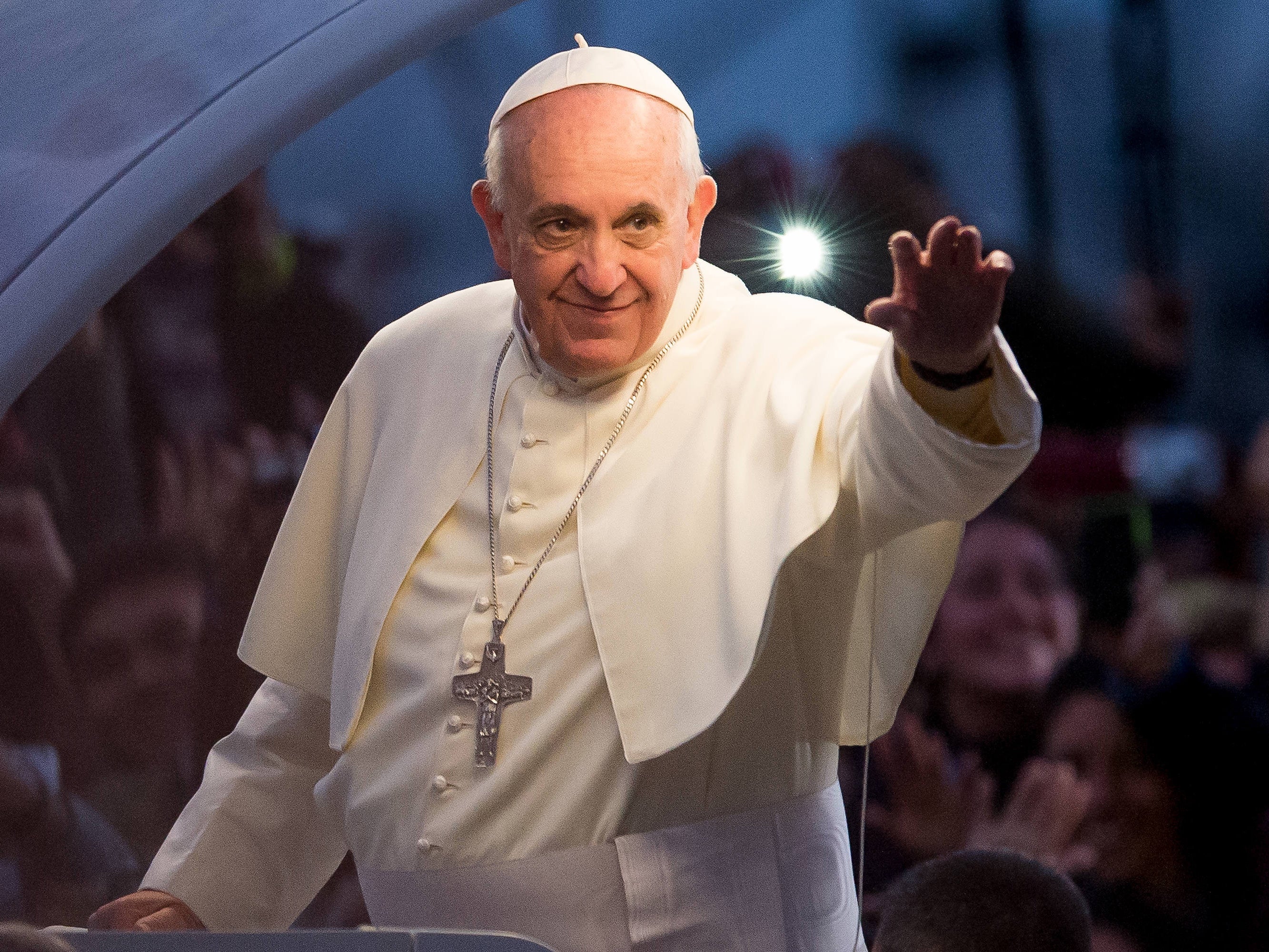Your support helps us to tell the story
From reproductive rights to climate change to Big Tech, The Independent is on the ground when the story is developing. Whether it's investigating the financials of Elon Musk's pro-Trump PAC or producing our latest documentary, 'The A Word', which shines a light on the American women fighting for reproductive rights, we know how important it is to parse out the facts from the messaging.
At such a critical moment in US history, we need reporters on the ground. Your donation allows us to keep sending journalists to speak to both sides of the story.
The Independent is trusted by Americans across the entire political spectrum. And unlike many other quality news outlets, we choose not to lock Americans out of our reporting and analysis with paywalls. We believe quality journalism should be available to everyone, paid for by those who can afford it.
Your support makes all the difference.Technically, I’m Catholic. I was baptised, I made my communion, I was confirmed, and I’ve not been excommunicated yet. I was raised by one atheist and one fairly philosophical agnostic - my father - who acknowledged the validity of my doubt but embraced the ritual of church-going. More importantly, he embraced the ambivalence of what God is. I remember going through a militant teenage phase, reeking to high heaven of Richard Dawkins and the Beginner’s Guide to Existentialism, sitting in the car with my dad and saying that if we doubt even slightly that God exists, to live honest lives we must behave as though there is no God. Dad, more tolerant than most people would be confronted with a 15 year old in a Sum 41 hoodie claiming knowledge of the mysteries of the universe, paused a moment and replied: “Why can’t we live as if we don’t know?”
When I was a child in the mid-90s, then still a cheerful believer, I stood up to join the queue for communion and asked my dad why he never did. The answer was because he had been divorced. He was not and is not able to participate fully in the rites of Mass - this atavistic ceremony in which he finds so much comfort, which connects him to his family, both living and dead.
The Pope’s recent comments, calling for a church of “open doors” to welcome divorced Catholics, have sparked speculation that he is moving towards a change in the current ban on divorced couples receiving communion. This, if true, will be faced with enormous internal opposition.
As a now-thoroughly lapsed Catholic and irretrievably lost soul, this means little to me personally. Changes in catechism about issues which the vast majority of people in my left-wing bubble are already happily ignoring seem laughably obtuse. This is true not only because I am not a believer but because of the glaring structural rot of the church as an institution.
In Ireland, where I grew up, this is being reiterated year on year. Their failure to coherently or compassionately address extensive child abuse, the symphysiotomy scandal, and the ongoing mistreatment of survivors of the Magdalene Laundries are clearly more urgent to address than the ability of divorced people to receive communion. Considering the substantial and ongoing human tragedy the church has enabled, this seems almost cruelly redundant. In 2007, when the official line was changed on unbaptised babies being condemned to purgatory, I couldn’t help but think bitterly of the bereaved, faithful parents who had lived their whole lives believing their children were doomed to spend eternity alone. Just like that, so easily, their suffering was rendered meaningless.
When I speak to my father, still attending Mass after all these years, singing in its choir, it becomes apparent to me that this change in direction could have a real and measurable impact on countless people who face this weekly rejection. That he and so many others continue to contribute to their churches despite exclusion is a remarkable testament to how meaningful it is to them.
The liberal veneration of Pope Francis as the cuddlier alternative to his more obviously nefarious predecessor has always seemed misguided to me. But my dad lives in a smaller parish now - it’s not so easy just to remain in your seat unnoticed. When he sings in the choir he sits in a tiny loft with the other few members. The Eucharistic minister climbs up to give communion to them, and he is the only divorced person amongst them, the only one passed over. If Pope Francis can make it so that he is treated with the same respect accorded to his fellow parishioners, I can only wish him well.

Join our commenting forum
Join thought-provoking conversations, follow other Independent readers and see their replies
Comments